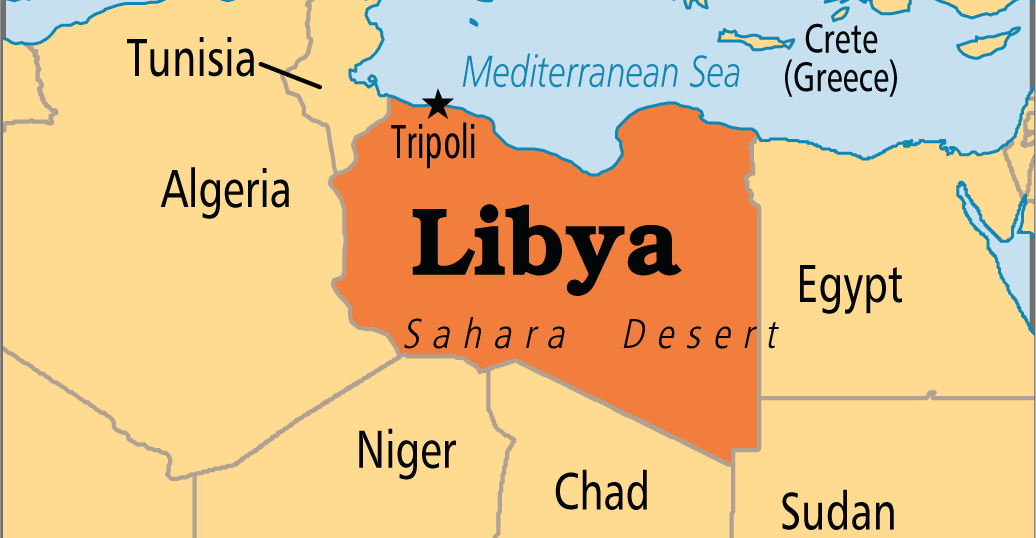Libya is in serious predicament. The stakes are very high. Political instability and the insecurity are quite alarming. People rampage viciously against each other. Rivalry armed groups held their grounds, often with ferocious behavior. The influential tribal leaders deemed any peace or political arrangement that excluded them is unacceptable. The most excruciating part is the blending of brutal violence and polarizations among tribal and political fractions. This can be judged by the numbers of people who have suffered political strife, insecurity and violent deaths. Cruel ISIL is the sum of all evils. They are severely brutalizing everyone including innocent civilians. In short, what is going on in Libya is horrendous, and it should receive considerable attention.
The inhumane tragedy in Libya should be stopped and by all means. The major focus shall be on the quest for security, peace and stability. It is the duty of Libyan leaders to provide their citizens with a healthy environment to live peacefully as equals with each others regardless of their political, regional or tribal affiliations. This venture requires strong new ideas, high energy and most of all courageous leaderships. Yet, the problem is that today, the Libyan leaders are locked in intense-narrow power struggle, and they are less focused on peace settlement.
Power struggle among the Libyan leaders is not new or trivial transient sign. Like most other nations and countries, power struggle is embedded in Libyan politics. In fact, the obsessive strives for power emerged vividly after the collapse of Colonel Muammar Gaddafi’s regime. Furthermore, it elevated during the interim National Transitional Council (NTC), in 2012. The competition for power reached its peak and accelerated markedly shortly after the arrival of the current “unity government.” This strife for power added extra measure of mistrust and brutality to the mix. Some of the groups believe that UN brokered peace (unity government) is dominated by few tribal and political elates that represent the eminent threat to their leadership and existence. Even inside of “unity government”, individuals and groups are competing vigorously with one another, still, if not necessarily to clash, no longer seems far-fetched. Not to mention, most of the groups, regional and tribal leaders consider “unity government” illegitimate. In addition, they are thriving openly and even violently to acquire absolute power in their regions and the country. In this sense, each group has strategic objectives that threaten the fundamental interests of the other sides including the “unity government”. As a result, each group is trying to construct its own military forces and become the dominant power in its region and the country at large. Here, it seems that Libya is delving and submerging in Hubbesian state of nature that “war of every man against every man.” In short, power struggle is adding extra complication to the situation and obviously will hinder any peace process or reconciliation inactivates.
Regional divisions and tribal devotions also obstruct peace settlement in Libya. In reality, the political culture in Libya is deeply rooted in group, region and tribal loyalties. Throughout history, the relations among regions, groups and tribes in Libya have been uneasy and often violent. Established groups and tribal leaders tend to regard themselves as the major defenders of their people, land and regional interest. They always prefer to maintain their status quo and reject any externally imposed leaderships or authorities. Such age-old regional and tribal leadership pattern is clearly visible today in the behavior of all competing factions. This is the reason why some of regional and tribal leaders rejected the UN brokered peace agreement (unity government). Most of these tribes believe that the mediators are impartial and intentionally excluded them from the process. They sense that the mediators imposed on them new leadership and norms that injured their tribal, regional and national prides. Moreover, this symptom expanded greatly even among those groups whom are participating in the current “unity government.” In fact, some of these individuals and groups do not have cordial relationships among themselves. Some of them perceive that they have been nudged away by top leaders of “unity government” albeit by peaceful and gradual means. So, despite what many earnest and well-intentioned UN officials and the current “unity government” seem to believe, the actual experience on the ground shows the opposite. Therefore, the ongoing conflict in Libya cannot be easily resolved just by enforcing peace settlement or empower one or few groups against other groups. In some respect, the best way to peace is via deep understanding to Libyan political culture.
Islamic terrorist groups in Libya are the major peace hinders. It is impossible to incorporate them in any peace process. In fact, they should be eradicated altogether. These terrorist groups are going by the name of Libyan Islamic Movement (al-Harakat al-Islamiya al-Libiya), or Libyan Islamic Fighting Group (LIFG). Also, these groups known in Arabic as Al-Jama’a al-Islamiyyah al-Muqatilah bi-Libya (Arabic: الجماعة الإسلامية المقاتلة بليبيا). These groups includes: Al Qaeda, Libya Shield Force, Battar Brigade, Ansar al Sharia Libya, Islamic State of Iraq and the Levant (Daesh)/(ISIL/ISIS), Islamic Youth Shura Council that later on allied with ISIL. Moreover, there are also some other small Islamic terrorist groups roaming around the country. Here, among all these Islamic terrorist groups in Libya, ISIL/ISIS is the worst group. This group (ISIL/ISIS) became active in Libya around 2014. ISIL is active all over Libya and with special concentrations in Cyrenaica in the east, Fezzan in the desert south, and Tripolitania (or Tarabulus) in the west. In fact, ISIL moved beyond Libya and recruit fighters from different countries around the world and especially from some African countries such as Sudan, Mali and Chad. ISIL is the cruellest terrorist group in Libya, they brutally kill, terrorizing and subjugate innocent civilians. In short, Islamic terrorist groups and specially ISIL/ISIS are the eminent peril and it should be eradicated entirely.
Obviously, Libya is in entangled cross roads of violence and political instability. This situation needs serious deliberation and strong steps toward peace and stability. No doubt, the current “unity government” have every good intention to reduce violence and bring peace and stability to the entire country. The admirable part of “unity government” is their strong commitment to bring all divided armed groups together. The most important hope is in their vigorous actions and endeavors to eradicate the repugnant ISIL group. This is very positive gesture from “unity government”, and it deserves all the supports and encouragements. Similarly, the international community should provide assistance to “unity government” and support its leaders to accomplish their plans in all fronts. Yet, unifying the armed groups to deal with ISIL alone is not enough and will not solve the problem. Yes, the evil ISIL presents an existential threat to all Libyans, and it must be eradicated from the entire country. However, still, the current fragile situation in Libya needs a robust security arrangement and unification of all Libyan stakeholders.
After all, the situation in Libya is chronic and it is not always easy to deal with it. Yet, despite its current murky situation, we at The Key Group believe that there is still great hope for security, group unification and peace settlement in Libya. Yes, this is very difficult moments for all Libyans. However, the Libyan people are very resilient and they are keenly quest for lasting peace and stability in their country. Indeed, peace is possible if the current “unity government” stays on its current positive path and bring all the divided factions together and reach into a comprehensive peace settlement. Thus, as the situation unfolds, the Libyan leaders are facing no task more important than to reconcile their differences, and accommodate their complex group, regional and tribal diversities. This is the best alternative method to reduce violence, bring peace, security and stability in Libya. It is the best antidote and route to transform Libya into blossom democracy and socio- economic stability. This is the most crucial moments in Libyan history in which the true and well prepared leadership should be evaluated and practically tested. So, it is time for all Libyan leaders to rise above and beyond trivial personal interests and lead their country into a better future.

